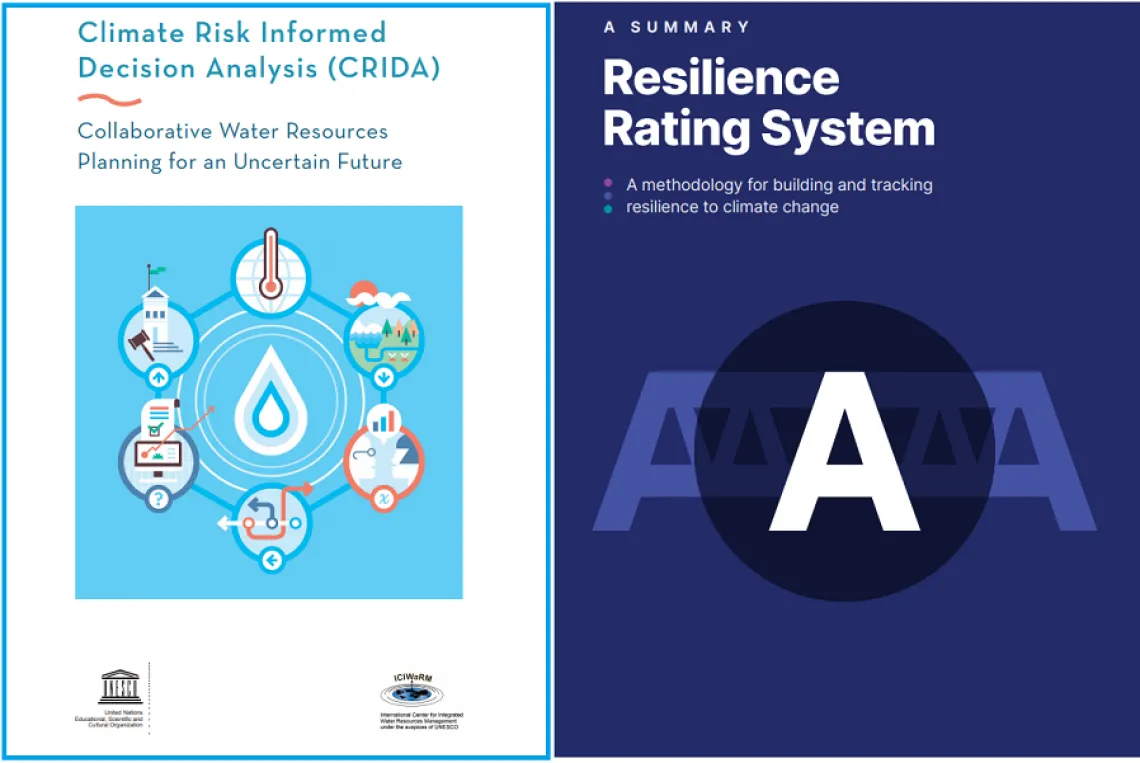CRIDA Highlighted in World Bank's Resilience Rating System for Water Sector Projects

To better monitor adaptation and resilience-related action, the World Bank’s Action Plan on Climate Change and Resilience has created a “Resilience Rating System” (RRS) for building and tracking resilience to climate change and disaster risks.
The main objectives of the RRS are to:
- Better inform decision-makers, client countries, and other stakeholders by providing specific assessment and reporting criteria to track resilience,
- Create incentives for more and better climate adaptation through enhanced transparency and standardized reporting of a project’s climate resilience
- Identify best practices that can be scaled up within or outside of the World Bank Group.
- Provide guidance on ways to incorporate risk reduction measures into project design and improve the quality of projects.
One of the two elements of the rating is the resilience of the project expressed in letter grades A+ to C. This grade “characterizes the confidence in the project’s ability to avoid financial, environmental, and social underperformance…A high rating denotes higher confidence that an investment will achieve its expected rate of return and the project will remain beneficial, despite any possible negative impacts of climate change.” Achieving an A+ rating means that:
- The project has conducted a basic climate and disaster risk screening and provides a qualitative estimate of residual risks and a justification for the level of risk.
- The project has conducted a multi-model risk assessment and considered adaptation options of identified risks.
- The project has conducted a quantitative stress test to ensure that plausible risks do not make it economically unviable.
- The project explicitly discusses the possibility of unexpected impacts and performs a systematic analysis of uncertainties that informs contingent planning in case of unanticipated changes.
The World Bank allows the use of approved, non-Bank methodologies to incorporate resilience into their project, and the RRS can be used to attribute a rating to these methodologies, which can then be transferred to projects that apply them.
Climate Risk-Informed Decision Analysis (CRIDA), a water management tool developed by G-WADI, ICIWaRM, AGWA, Deltares and others, is listed as a methodology whose well-documented use can be enough for a project to receive an A+ rating in the Resilience Rating System. In fact, it is the only non-Bank developed methodology listed that can lead to an A+ rating for water sector projects. This listing gives us confidence that CRIDA can be a highly useful tool for building and tracking resilience to climate change and disaster risks.
